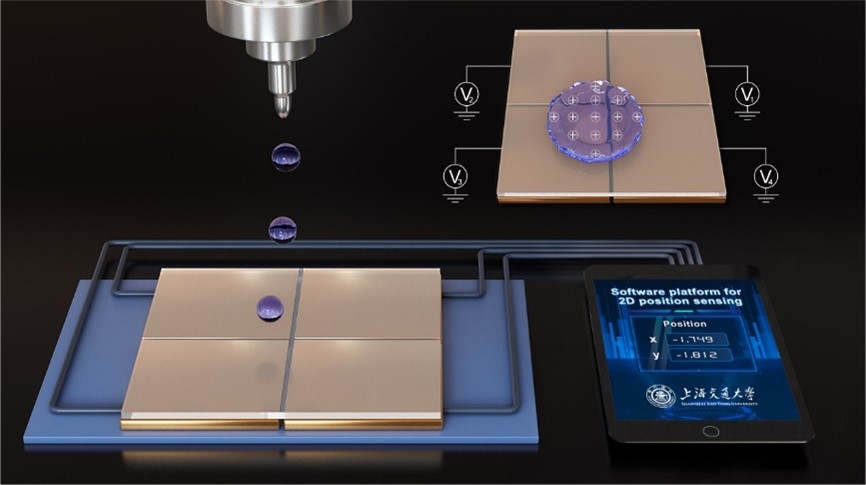
News

News
Recently, the research team led by Dr. Songtao Hu in the Institute of Mechatronics and Logistics Equipment of School of Mechanical Engineering have published a journal paper titled by “Position sensing of jetting droplets enabled by triboelectric nanogenerators” in Nano Energy (IF = 19.069). Xijia Ding is a co-first author of this journal paper. Dr. Songtao Hu, Dr. Chi Zhang of Beijing Institute of Nanoenergy and Nanosystems are the co-corresponding authors. Dr. Xi Shi, Dr. Zhike Peng, and Dr. Bo Zhang of Ningxia University are the collaborators.

Inkjet printing has been widely used in many areas such as graphic printing, additive manufacturing, biomedicine, and flexible electronics. Deposition positioning of the droplet will affect printing accuracy and reliability, thus calling for a fast and precise identification. The current measurement in printing instruments is typically realized by imaging techniques, which have some disadvantages such as high cost, large size, occlusion of the target object and light interference. The triboelectric nanogenerator (TENG) uses Maxwell’s displacement currents for mechanical-to-electrical energy conversion. It can be used not only as energy harvesters, but also as self-powered sensors, which provides the way for health monitoring in the realms of mechanical structures and life bodies.
The group report a solid-liquid TENG sensing technique for the position sensing of jetting droplets. Multiple single-electrode-mode TENG units form a self-aware array to characterize the position based on the triboelectric output sum and ratio. The working mechanism is revealed by developing an equivalent-capacitor-set hypothesis, expressing the relationship between contact area and open-circuit voltage. This study is the very first demonstration of solid-liquid TENGs for the position sensing of inkjet printing, paving the way for the in-situ monitoring of intelligent devices such as additive manufacturing.
This work was supported by the National Natural Science Foundation of China and the Young Elite Scientist Sponsorship Program by the China Association for Science and Technology.
Paper Link: https://doi.org/10.1016/j.nanoen.2023.108289

Shanghai Jiao Tong University
Address: 800 Dongchuan Road, Shanghai
200240